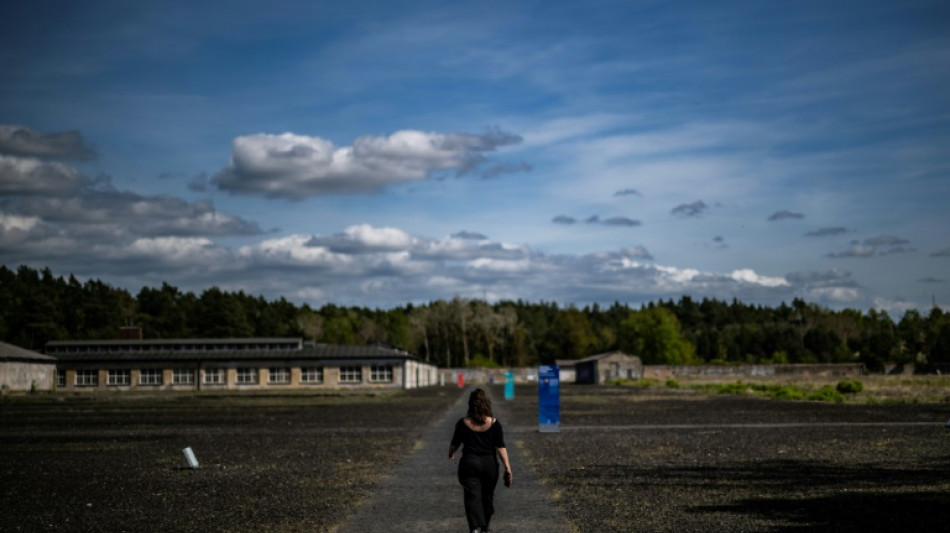
Germans mark liberation of Ravensbrueck Nazi camp

Holocaust survivors on Sunday urged the world not to forget the atrocities committed by the Nazis, during a ceremony to mark 80 years since the liberation of the Ravensbrueck concentration camp.
Nine men and women who survived the camp, now in their 80s and 90s, relatives of former prisoners and senior officials were among about 1,200 people attending the event in northern Germany.
Lili Keller Rosenberg, a Jewish Frenchwoman deported to the camp at the age of 11, told AFP she believed her survival was "exceptional", and a "great revenge on the Nazis".
"We never imagined we could last this long. I was destined to perish in 1943 when I was deported," said the 93-year-old, who spent more than a year at Ravensbrueck before being transferred to the Bergen-Belsen concentration camp.
She said she was determined to keep recounting her experiences to young people to avoid a repeat of the past: "These young people must fight racism, which is a scourge, and fight against anti-Semitism."
About 130,000 people were sent from all over Europe to Ravensbrueck, the Nazi's biggest camp for women and children, north of Berlin. A small adjacent camp was also constructed for male inmates.
As well as Jews, those held at the camp included political opponents, Roma and convicted criminals.
- 'Left its mark' -
Between 20,000 and 30,000 people died there. Many died due to forced labour -- inmates had to work 12 to 14 hours a day -- as well as in gas chambers and on a final death march.
On April 30, 1945, the Soviet Red Army liberated Ravensbrueck, finding only about 3,000 sick prisoners remaining.
German survivor Ingelore Prochnow, who was born in Ravensbrueck, told Sunday's ceremony that she had "no memory of fear, hunger or cold" at the camp.
"Nevertheless, I believe that all of this has left its mark on my body and soul," she said, to applause from guests.
Concerns are growing in Germany about the future of Holocaust remembrance amid a surge in support for the far-right AfD, which emerged as the second-biggest party in national polls in February.
Some politicians in the party -- which was last week designated an extremist group by Germany's domestic intelligence service -- have pushed back against the country's tradition of remembrance.
At a ceremony Saturday to mark the liberation of the Neuengamme concentration camp in Hamburg, Chancellor Olaf Scholz warned that "autocrats, extremists and populists around the world, including in our own countries, want to attack and destroy this peaceful and united Europe.
"We must not allow this to happen."
Germany has held several ceremonies this year to mark the 80th anniversary of the liberation of Nazi camps and other major events in the run-up to the end of World War II.
H.Reyes--SFF

 London
London

 Manchester
Manchester
 Glasgow
Glasgow
 Dublin
Dublin
 Belfast
Belfast
 Washington
Washington
 Denver
Denver
 Atlanta
Atlanta
 Dallas
Dallas
 Houston Texas
Houston Texas
 New Orleans
New Orleans
 El Paso
El Paso
 Phoenix
Phoenix
 Los Angeles
Los Angeles



